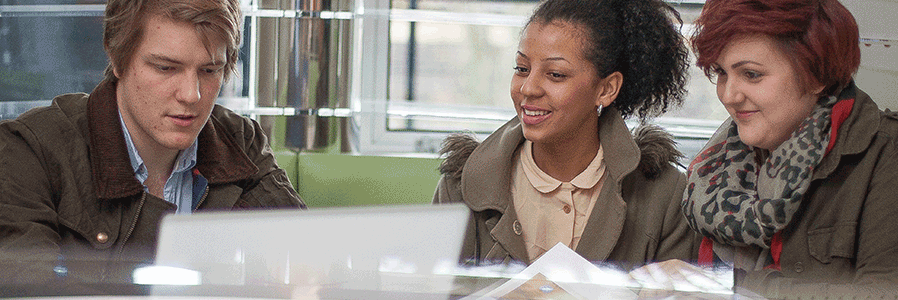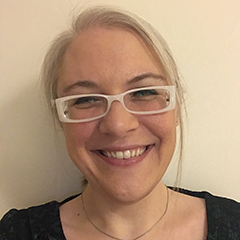15 February 2021
Resilience breeds resilience

Author
Dr Alison Eales
Quality Enhancement Specialist, QAA Scotland
The Scottish sector is currently embarking on a new Enhancement Themes adventure. Resilient Learning Communities will run until 2023, and at its heart are issues relating to accessibility, inclusion, diversity, and equality (or equity). It is likely that this Theme is going to teach us things that challenge us individually and collectively, and that we are going to have to learn to be comfortable with being uncomfortable - in other words, we are going to need a certain degree of resilience to get us started. Perhaps developing resilience is a little bit like nurturing a sourdough starter: it requires not only the right ingredients, but the right conditions, and a commitment to keep it alive and growing.
The sector has been nurturing its resilience ‘starter’ for many years and is in good shape to tackle these issues. Ensuring that individuals and communities within the sector have fair access, are treated equitably, and feel included and represented are high on the agenda - and this is true not only in relation to learning, teaching and assessment, but also the quality enhancement activities that support them. We are all familiar with the list of characteristics that are protected in law, along with others, such as socioeconomic status and care experience, that can impact on the student experience. We are developing an understanding of intersectionality - the complex ways in which our characteristics interact - and principles of universal design.
Evidence of our collective commitment to removing barriers and addressing inequalities can be seen in our previous Enhancement Themes work. Student Transitions (2014-17) created opportunities to address the needs of particular communities of students, including those with disabilities, mental health challenges, or care experience. Examples of practice and research relating to this Theme can be found on the Student Transitions Map, which includes an equality and diversity ‘island’. Evidence for Enhancement (2017-20) concluded with a hugely successful online conference that included papers and panels relating to equality and diversity. We supported a highly engaging collaborative project on Widening Participation with Lecture Recording, founded on a broad definition of ‘widening participation’ that recognised intersections with protected characteristics.
The potential of technology to support initiatives aimed at enhancing access and inclusion came into sharp focus in 2020. This is reflected in our Focus On: Technology Enhanced Learning project, and particularly in the Resource Hub we developed as part of this project. Equality and diversity were also at the heart of our 2018-19 Focus On project, Graduate Skills, which considered how we might support students from all backgrounds and characteristics to develop skills that will help them to secure and sustain success in the workplace. It is clear that there is sustained appetite for change, and this has helped to inform the shape of our new Enhancement Theme.
Two of the collaborative clusters we are supporting in 2020-21 - Decolonising the Curriculum in the Time of Pandemic and Student Mental Wellbeing Within Our BAME and LGBTQ+ Learner Communities - have an explicit equality and diversity focus. We are also delighted to be partnering with AdvanceHE on the Anti-Racist Curriculum project. This is part of AdvanceHE’s wider Tackling Racism on Campus project, with both projects led by Khadija Mohammed (University of the West of Scotland) and supported by the Scottish Funding Council. The Anti-Racist Curriculum project will conduct research and consultation with the aim of producing a ‘Getting Started Guide’ to support institutions in the development and delivery of anti-racist curricula, and is being conducted by a working group of around 25 people from across Scotland’s tertiary sector, who will work together on four priority areas. We kicked 2021 off with an introductory meeting where we got to know each other a little. During a particularly miserable January (and a year when we’ve probably all had quite enough of online meetings), it was a joy to be part of this positive, energizing event. It became clear that there is a huge amount of passion about this issue and a genuine commitment to create the support necessary for change. The working group includes many people with lived experience, a factor that will be critical to the success of the project.
On a personal note, as someone with no lived experience in this area, I am hoping that through being involved in the Anti-Racist Curriculum project I will learn to be a better ally. Reflecting on the things I have really valued about my experience in the Scottish higher education sector, the opportunity to be part of such a diverse community is at the top of the list. It is a privilege to work in a sector that brings together learners and educators from different backgrounds and with different perspectives, and we each have a role to play in ensuring that individuals are welcomed and valued, and that structural inequality is not left unchallenged.
It is my hope that Resilient Learning Communities will help to create the optimal conditions for resilience to thrive: that we will develop a shared understanding of what it is, what it needs, and how we can effect meaningful and lasting change.
